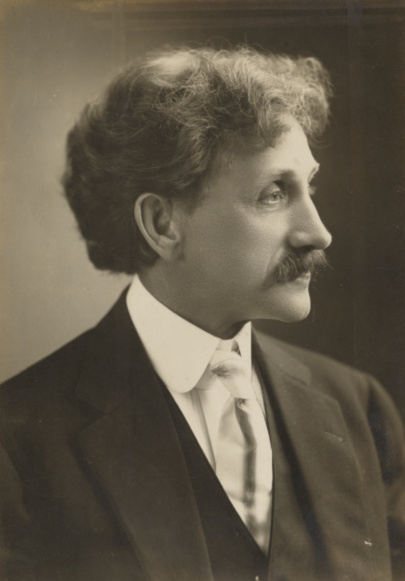Zdroj: Better-World Philosophy: A Sociological Synthesis (1899), Egoism and Altruism, pp. 117–118
J. Howard Moore: Citáty anglicky
Zdroj: Better-World Philosophy: A Sociological Synthesis (1899), The Social Problem, pp. 87–88
Zdroj: Better-World Philosophy: A Sociological Synthesis (1899), The Social Problem, p. 87
Zdroj: Better-World Philosophy: A Sociological Synthesis (1899), The Social Problem, p. 87
Right and wrong exist as conceptions of mind, because there are portions of the universe capable of happiness and misery. Erase sentiency from the universe and you erase the possibility of ethics. Every conscious portion of the universe, therefore, has ethical relations to every other conscious portion (man, woman, worm, Eskimo, oyster, ox), but not to inanimate portions (clod, cabbage, river, rose), because the ones are sentient and the others are not.
Zdroj: Better-World Philosophy: A Sociological Synthesis (1899), The Social Problem, pp. 81–82
Zdroj: Better-World Philosophy: A Sociological Synthesis (1899), The Social Problem, pp. 79–80
“The inanimate universe is related to the animate as means to end.”
We conscious individuals manipulate it in manners best adapted to the satisfaction of our desires. We barricade its rivers, plow its seas, ingulf its vegetations, enslave its atmospheres, torture its soils, and perform upon it any other surgery or enormity that will help us in the satisfaction of these driving desires of ours. The inanimate is. if reason is not treason, the gigantic accessory of the consciousnesses that infest it. The animate environment, on the contrary, is related to each living being, not as means, but as end.
Zdroj: Better-World Philosophy: A Sociological Synthesis (1899), The Social Problem, pp. 78–79
Zdroj: Better-World Philosophy: A Sociological Synthesis (1899), The Social Problem, p. 75
Zdroj: Better-World Philosophy: A Sociological Synthesis (1899), The Social Problem, pp. 74–75
Zdroj: Better-World Philosophy: A Sociological Synthesis (1899), Blunders, p. 72
“Caprice is a hallucination. There is no caprice, only ignorance.”
Zdroj: Better-World Philosophy: A Sociological Synthesis (1899), Blunders, p. 55
Zdroj: Better-World Philosophy: A Sociological Synthesis (1899), The Problem of Industry, pp. 40–41
Zdroj: Better-World Philosophy: A Sociological Synthesis (1899), The Problem of Industry, p. 37
Zdroj: Better-World Philosophy: A Sociological Synthesis (1899), The Problem of Industry, pp. 36–37
Zdroj: Better-World Philosophy: A Sociological Synthesis (1899), The Problem of Industry, pp. 19–20
Zdroj: Better-World Philosophy: A Sociological Synthesis (1899), The Problem of Industry, p. 17
Zdroj: Why I Am a Vegetarian: An Address Delivered before the Chicago Vegetarian Society (1895), pp. 39–40
Zdroj: Why I Am a Vegetarian: An Address Delivered before the Chicago Vegetarian Society (1895), pp. 19–20
Zdroj: Why I Am a Vegetarian: An Address Delivered before the Chicago Vegetarian Society (1895), pp. 11—12
"Preface"
Why I Am a Vegetarian: An Address Delivered before the Chicago Vegetarian Society (1895)
Quoted by Henry S. Salt in Seventy Years Among Savages (1921), p. 244
Suicide note
"The Source of Religion", International Socialist Review, Vol. 16, Iss. 12, Jun. 1916
"The Source of Religion", International Socialist Review, Vol. 16, Iss. 12, Jun. 1916
"The Source of Religion", International Socialist Review, Vol. 16, Iss. 12, Jun. 1916
"A One Time Resident Writes", Atchison County Journal, 23 Mar. 1916
The National Humane Review, Vol. 4–6, American Humane Association, 1916
"Discovering Darwin", Proceedings of the International Anti-Vivisection and Animal Protection congress, held at Washington, D.C. December 8th to 11th, 1913 (1913), p. 158The only consistent attitude, since Darwin established the unity of life (and the attitude we shall assume, if we ever become really civilised), is the attitude of universal gentleness and humanity.
"Discovering Darwin", Proceedings of the International Anti-Vivisection and Animal Protection congress, held at Washington, D.C. December 8th to 11th, 1913 (1913), p. 156
